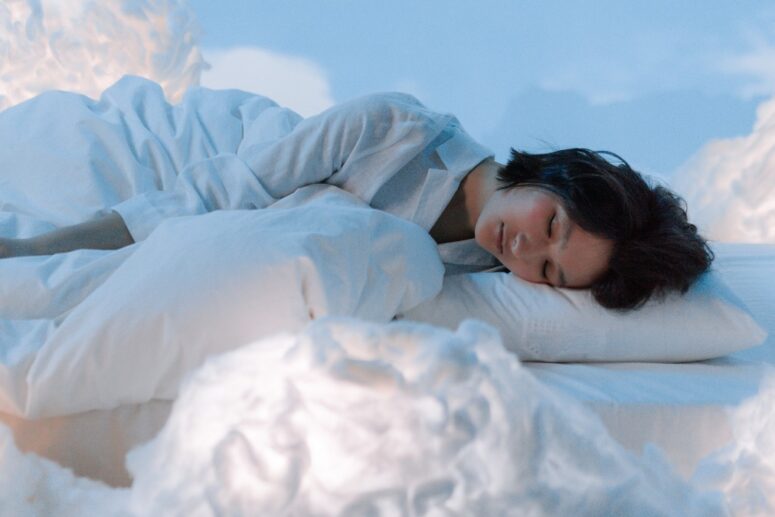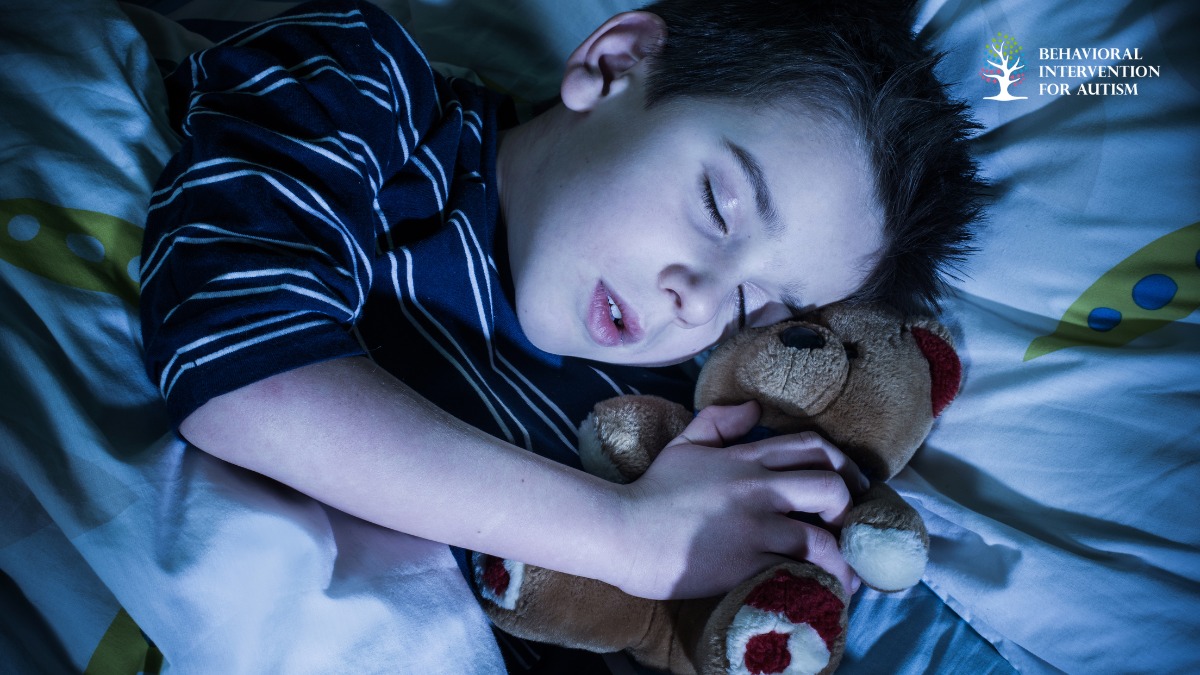
Table of Contents
Autism Spectrum Disorder (ASD) is a developmental condition that affects communication, behavior, and social interaction. It encompasses a range of symptoms and challenges that can vary significantly among individuals. People with autism may experience difficulties in understanding social cues or expressing themselves, which can impact their daily living, including sleep routines. Additionally, challenges with executive functioning can make it harder to establish consistent bedtime habits and adapt to changes in routine.
Impact of Autism on Sleep Patterns
Many individuals with autism experience sleep disruptions that can be attributed to various factors. Research indicates that sleep issues such as trouble falling asleep, frequent awakenings, and irregular sleep schedules are common among this population.
The impact on sleep can be severe, affecting mood, behavior, and overall quality of life. A study found that approximately 50-80% of children with autism have trouble sleeping compared to about 20-30% of typically developing children.
Factors contributing to these sleep disturbances include sensory sensitivities, anxiety, and communication difficulties, which can all interfere with sleep routines. Understanding the connection between autism and sleep is crucial for parents and caregivers seeking strategies to help improve their loved ones’ sleep habits.
3 Common Sleep Challenges in Autism
Understanding the sleep challenges faced by individuals with autism is crucial for parents and caregivers. These challenges can significantly affect daily living, impacting both the individual and the family dynamic.
Insomnia
Insomnia is a prevalent issue among individuals with autism. Many experience difficulties falling asleep, staying asleep, or waking up too early. This can lead to persistent fatigue and affect their overall well-being.
Melatonin Imbalance
Melatonin is a hormone crucial for regulating sleep-wake cycles. Research indicates that individuals with autism may have imbalances in melatonin production. This can disrupt their natural sleep patterns and contribute to difficulty in initiating and maintaining sleep.
Sensory Sensitivities
Sensory sensitivities are common in individuals with autism and can significantly impact their ability to sleep. Many individuals may be sensitive to lights, sounds, or textures in their environment, which can cause discomfort and prevent restful sleep.
The sleep challenges faced by individuals with autism, such as insomnia, melatonin imbalances, and sensory sensitivities, highlight the need for tailored strategies to improve sleep routines. Understanding these issues is vital in providing the necessary support for better sleep health.
3 Factors Influencing Sleep in Autism
Sleep routines for individuals with autism are influenced by various factors. Understanding these influences can help parents and caregivers implement effective strategies.
Communication Difficulties
Communication challenges are common in individuals with autism. Difficulties in expressing needs or understanding bedtime expectations can lead to frustration, making it harder for them to settle down for sleep. Lack of clarity about bedtime routines may result in anxiety, impacting overall sleep quality.
Anxiety and Stress
Anxiety is prevalent among individuals with autism. This anxiety can arise from various stimuli, including changes in routine or unfamiliar environments. Stressful situations may lead to racing thoughts or physical restlessness, hindering the ability to fall asleep or stay asleep.
Medication Effects
Medications prescribed for individuals with autism may also impact sleep. Some medications can cause drowsiness, while others may lead to insomnia as a side effect. Understanding how different medications affect sleep patterns is crucial for managing nighttime routines effectively.
3 Strategies for Improving Sleep Routines
Improving sleep routines for individuals with autism requires a thoughtful approach. Implementing structured strategies can lead to better sleep quality and overall well-being.
Consistent Bedtime Routine
Establishing a consistent bedtime routine is crucial for signaling to the body that it is time to wind down. A predictable sequence of activities can help create a sense of security and improve sleep onset.
Involving the individual in choosing preferred activities can enhance compliance and enjoyment.
Creating a Calming Environment
The sleep environment greatly influences the ability to relax and fall asleep. A calming space can minimize distractions and promote comfort.
Tailoring the sleeping space to the individual’s preferences will aid in creating an inviting atmosphere conducive to sleep.
Managing Stimuli Before Bed
Managing stimuli in the time leading up to bedtime can prepare the mind and body for sleep. Limiting exposure to certain activities is essential for promoting a smooth transition to sleep.
Seeking Professional Help
Finding the right support and resources is essential for addressing sleep challenges effectively. Professional assistance can often provide valuable insights into how autism impacts sleep routines and help develop strategies tailored to individual needs.
Consulting with Healthcare Providers
Parents and caregivers should consider consulting with healthcare providers specializing in autism. These professionals can conduct comprehensive assessments to identify specific sleep issues and recommend appropriate interventions. Common practices include:
Assessment Type | Purpose |
Sleep Studies | Evaluate sleep patterns and disruptions |
Behavioral Assessments | Identify factors influencing sleep issues |
Medical Evaluations | Check for underlying health concerns |
Healthcare providers may also offer guidance on behavioral techniques or refer families to sleep specialists for targeted support.
Therapy Options
Various therapy options can assist in improving sleep routines for individuals with autism. These options can help address underlying issues contributing to sleep disturbances.
Therapy Type | Description |
Cognitive Behavioral Therapy (CBT) | Focuses on changing thoughts and behaviors related to sleep |
Applied Behavioral Analysis (ABA) | Assists in developing positive sleep habits with reinforcement strategies |
Occupational Therapy | Addresses sensory processing issues that may affect sleep |
Therapy can create a structured approach to managing sleep difficulties, leading to more restful nights.
Medication Considerations
In some cases, medication may be recommended to help manage sleep problems associated with autism. It is vital for parents and caregivers to discuss the potential benefits and risks with a healthcare provider.
Medication Type | Purpose |
Melatonin Supplements | Often used to regulate sleep cycles |
Antidepressants | May help reduce anxiety that impacts sleep |
Antipsychotics | Prescribed in severe cases to manage behaviors affecting sleep |
Medications should be considered carefully and monitored for effectiveness and side effects. Regular follow-ups with healthcare professionals can help ensure that any prescribed treatment is working as intended.
Take the First Step Toward Better Sleep
Struggling with sleep challenges can be overwhelming, but the right support makes a difference. Many children with autism experience difficulties with bedtime routines, staying asleep, or adjusting to schedule changes. Through personalized strategies, we help families create structured, calming nighttime habits that promote restful sleep. Our dedicated team at Behavioral Intervention For Autism provides high-quality, evidence-based ABA therapy services designed to support lasting progress. If you’re looking for compassionate, effective care, reach out today. Let’s work together to improve your child’s sleep and overall well-being with expert ABA therapy in Florida.
Sources:
- 9 Common Obsessions of Children With Autism You Should Know - February 25, 2025
- What is Neurodiversity? A Guide to Embracing Differences - February 25, 2025
- Understanding Hyperfocus in Autism: What It Means and Why It Happens - February 25, 2025


